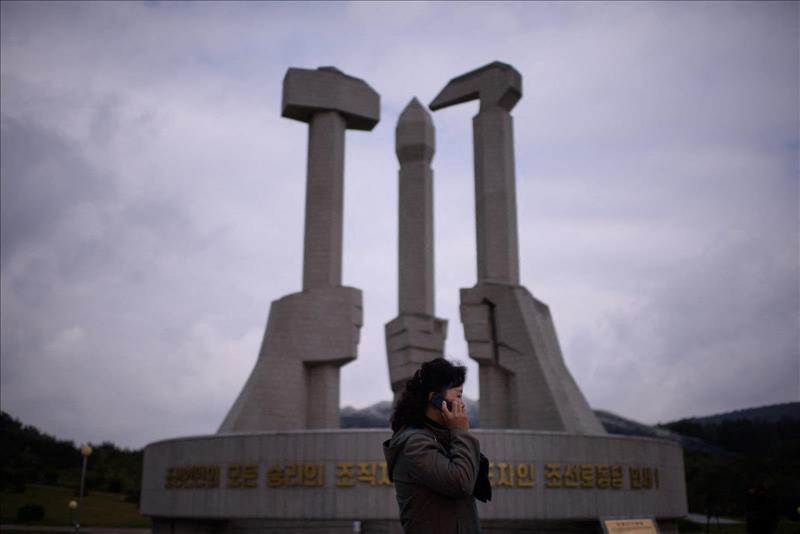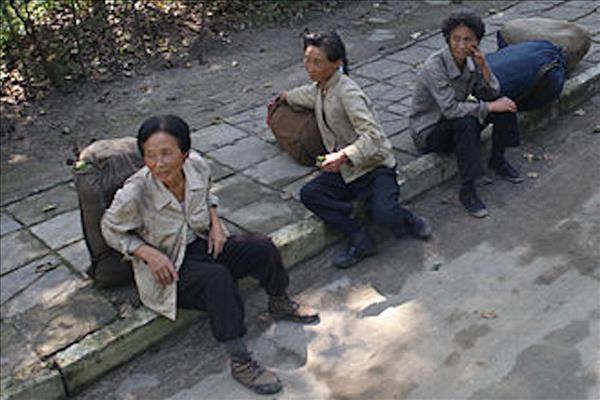(MENAFN- Asia Times) Having often observed that his fellow countrymen are lucky, Mao Anying died young fighting in the Korean War. I''m amused to learn that some Chinese even celebrate the anniversary of the death of Mao Zedong's favorite son as an annual Thanksgiving-type holiday.
The Chinese are fortunate to have been spared dynastic rule, with its inevitable accretions of shibboleth and taboo. Would or could a Deng Xiaoping have arisen under a Mao dynasty and taught the people that to be rich is glorious?
More likely, I imagine, they''d be enduring a Groundhog Day-style endless repeat of Mao's disastrous and deadly Great Leap Forward and Great Proletarian Cultural Revolution.
That's the way it has gone next door in North Korea under the Kim dynasty, as we''ve seen once again this week: Current ruler Kim Jong Un instructed his subjects to return to the socialist orthodoxy that was strictly enforced by his grandfather and father – until the 1990s when the people were starving and the regime had to acquiesce temporarily in a creeping marketization, privatization and capitalization of the economy.
Pyongyang's official Korean Central News Agency quoted Kim as proclaiming, in a letter to representatives of labor organizations who had gathered for a meeting, an ''uncompromising struggle'' against anti-socialist and non-socialist practices.
Kim's letter reads like a mummified relic from his grandfather's time. Before I decided I could read no farther I counted seven favorable mentions of communism.
''The first task facing the trade unions is to firmly prepare the working class and all other trade union members as possessors of the communist faith who fight with a conviction in the bright future of our style of socialism,'' he wrote.

The symbols of the North Korean Workers'' (communist) Party at Pyongyang's Monument to the Party Founding are a hammer, a sickle and a writing brush – the latter to symbolize the party's intellectuals. Photo: AFP / Ed Jones
Kim praised ''the communist traits and virtues of all the people sharing pleasure and sorrow while helping and leading one another forward.'' He assured the meeting attendants that ''all the activities of our party are oriented and subordinated to bringing this happy society into reality at an earlier date.''
After all, socialism with a goal of communism was the ideology bequeathed to Kim Il Sung by the Soviet generals who put him in power in the northern zone of Korea in 1946. And if it was good enough for Grandpa, it's good enough for Un.
The current Kim ruler in his letter duly praised proletarian throwbacks (if any such people really exist) ''who loyally support the Party's cause by invariably carrying forward their glorious fighting traditions and revolutionary spirit though the era has changed and one generation is being replaced by another continuously with the passage of time.''
If we can trust , Kim actually employed Maoist terminology: ''We must not only create solid foundations for reactivating the overall national economy and improving the people's standard of living during this five-year plan period, but make a great leap forward every five years.'' (Italics are mine.)
Mao's Great Leap inspired Kim Il Sung's 1950s Chollima movement, named for a legendary winged (and therefore great-leaping) horse, during which Kim intensified the collectivization of agriculture. He went too far with that, as he came to realize, and in 1959 reversed some of the changes, restoring to farm families individual kitchen garden plots and the right to use them to raise chickens, pigs, ducks and rabbits for sale.
Regarding Chollima, its memory inspired one of Kim Jong Un's favorable mentions in his letter of communism.
Kim wrote that it's necessary to persuade the people ''to give play to the communist traits and noble virtues of unhesitatingly sacrificing themselves for the sake of society, the collective and fellow people in today's advance, holding higher the slogan ''One for all, all for one!'' which was held in the Chollima era, and find the value and worth of genuine life in contributing to the country's prosperity and people's happiness with their creative work.''
On paper, of course, despite the changes that Deng and his successors wrought, the Chinese Communist Party is still officially committed to communism. So Kim Jong Un's use of the term won''t turn off Xi Jinping at a time when Kim appears to have been , after having closed off his borders to try to keep the coronavirus out.

Chinese President Xi Jinping on October 14, 2020, laid a basket of flowers at the statue of late Chinese leader Deng Xiaoping at Lianhuashan Park in Shenzhen, south China's Guangdong Province. Photo: AFP / EyePress News
But the letter is not just rhetoric. Reports say the Pyongyang regime – as it periodically does until pushback from citizens predictably blunts such efforts – has recently adopted policies with teeth in them to combat social and economic changes that were making people more affluent and less dependent on the state.
That sort of progress, which has included the development of a middle class, in the minds of the Kims clearly translates into threatening the longevity of the family regime.
''Since mid-April,'' , ''the North Korean authorities have begun to strongly interfere with and control individual economic activities.''
AsiaPress, which notes that it ''contacts its reporting partners in North Korea through smuggled Chinese mobile phones,'' quotes one of those undercover journalists in Ryanggang Province as reporting details of the crackdown in the border city of Hyesan:
''The strong measures began after April 15 (Kim Il Sung's birthday) and are aimed at eradicating private business outside the public market. From selling bread or buckwheat on the street to running a private restaurant in your own home, selling products on the street is completely banned and the goods will be confiscated without mercy if found. Any business that has not been approved by the authorities is strictly prohibited.''
''The violent crackdown was like something out of a movie,'' the AsiaPress account added. ''The merchants resisted by crying and screaming. Even an old lady sitting near the market selling sunflower seeds was chased away. I really feel sorry for her. Since the government does not provide rations, the people have been earning for food on their own, but now they can''t even do that. There are people who want to defect, too.''

Women with their backpacks of goods for sale outside a North Korean market. Photo: Wikipedia
In addition, , ''The North Korean authorities have ordered the abolition of all private cultivated land in mountainous areas, known as sotoji or small land, causing widespread anxiety among farmers.''
The regime casts this element of its crackdown as necessary to combat mountainside erosion, which has indeed been a serious problem ever since Kim Il Sung foolishly made agricultural conquest of the heights into national policy. (I''ve about this problem.)
However, says the Asia Press article, ''the main purpose of the ban is to control individual economic activities rather than to protect forests. In other words, it is a part of the policy to label ''private farming'' as anti-socialist phenomenon.''
According to an undercover AsiaPress reporter in North Hamkyung Province, ''Farmers work hard when it's their sotoji. If it were to belong to the [collective] farm, production would surely drop by an order of magnitude.'' Nevertheless, ''the authorities have even given a lecture on ''the mistaken idea that you should do better in your personal farm than in your collective farm work.''''
The author of Under the Loving Care of the Fatherly Leader: North Korea and the Kim Dynasty, Bradley K. Martin has watched the Kim family regime for 44 years.
MENAFN28052021000159011032ID1102160360
Legal Disclaimer:
MENAFN provides the information “as is” without warranty of any kind. We do not accept any responsibility or liability for the accuracy, content, images, videos, licenses, completeness, legality, or reliability of the information contained in this article. If you have any complaints or copyright issues related to this article, kindly contact the provider above.